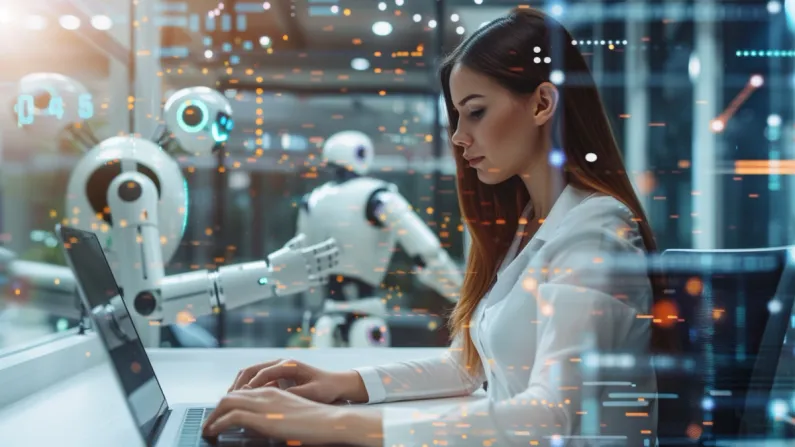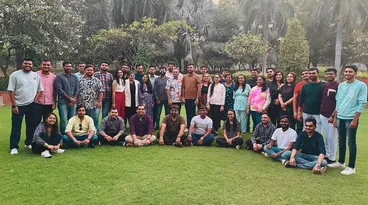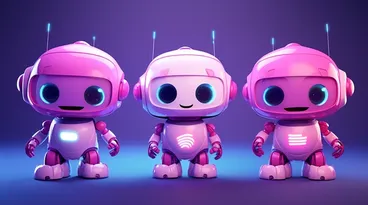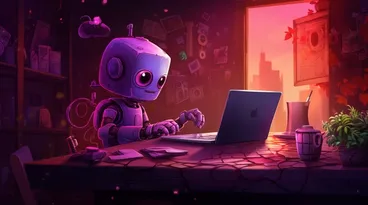Have you ever thought about how AI algorithms could assist HR departments in reducing the time spent screening a large number of job applications across various roles? According to Springer, Unilever, a British multinational company, reduced the required time of HR professionals per application by 75% through AI tools. Undoubtedly, this stands out as a primary factor motivating our HR team at SoluteLabs to use AI effectively during the hiring process. The rise of Generative AI has transformed the way People Team carry out their responsibilities, enhancing productivity and efficiency in the workplace.
As an HR professional, I recognize the importance of staying updated in my field with technological advancements. Many articles discuss how AI is utilized in areas such as recruitment, employee engagement, performance evaluation, and onboarding and offboarding processes. By reading these articles, I gained fresh insights and used AI to enhance my HR practices.
Here are a few articles that have helped us understand the collaboration between Generative AI and HR Operations
- Generative AI & HR: Our 33 Use Cases
- Unlocking the Future of HR: Generative AI's Impact on Digital HR
- Generative AI in HR: How to Use It for Better People Processes
- How is AI used in human resources? 7 ways it helps HR
Understanding Generative AI in HR Transformation
Being an HR professional exploring the intersection of generative AI and HR transformation is a must in today’s time. I'm deeply involved in applying artificial intelligence techniques to create content or solutions significantly impacting human resources functions.
My journey in this innovative field reveals its immense potential to revolutionize recruitment, training, performance evaluation, and employee engagement. Through my work, I've seen closely how generative AI can automate routine HR tasks. I draft job descriptions, screen resumes, and schedule interviews with a level of efficiency that allows me and my HR colleagues to dedicate more time to strategic initiatives.
This technology not only streamlines administrative processes but also plays a crucial role in fostering more inclusive and unbiased HR practices. By minimizing human biases in decision-making processes, I'm contributing to creating a more equitable workplace.
Why Do We Need Generative AI in Human Resource Management?
Generative AI plays a crucial role in HRM for several valid reasons. First and foremost, it saves us a ton of time by handling repetitive tasks like sorting through resumes and scheduling interviews. Also, it helps us personalize experiences for our employees by looking at a bunch of data and figuring out what they need, like personalized training and career plans.
Then, it gives us smart insights to make better decisions about hiring, evaluating performance, and keeping our team engaged. It's also a big help in making sure we're fair and inclusive by spotting and fixing any biases in our processes. And it's pretty cool because it can even predict stuff like who might leave the company or how well someone might perform. So basically, it's like having a super-smart assistant who helps us do our HR job even better.
Integrating AI within the HR Department at SoluteLabs
Here at SoluteLabs, we have started utilizing an AI tool for the recruiting function called Expertia.ai, a hiring applicant tracking system. Expertia.ai creates job descriptions that accurately reflect our employment needs, which helps attract more candidates who meet our requirements. It gathers profiles and resumes from several portals, cutting down on the amount of time needed for screening. AI gives each profile a match score based on the skill sets, making it easier to rate applicants and screen them for the job.
Our People Team now works more efficiently by using Generative AI for creating Job descriptions, HR letters, drafting HR policies, etc. We use ChatGPT or Gemini to also help in creating career roadmaps and preparing onboarding plans for new hires. This saves time by shifting the focus from repetitive tasks to high-value crucial tasks, which require critical thinking ability.
We also use generative AI for drafting newsletters or HR blogs to improve content production and encourage creativity. This helps the team fine-tune the material to better fit the company's brand and culture.
As HR professionals, it's crucial for us to continuously enhance our skills and integrate AI into various HR functions. While we've already implemented AI in some areas, we're now gearing up to extend its use across other HR functions in the coming months. We're committed to sharing our experiences and insights with you as we progress.
Furthermore, we're thrilled to announce some exciting news. With AI technology experiencing significant growth in the tech industry, SoluteLabs has taken the initiative to collaborate with SoftmaxAI, a company renowned for its expertise in MLOps, AI/ML, and data engineering. This partnership enables us to expand our service offerings and enhance the value we provide to our clients. We look forward to tackling more ambitious projects by utilizing our collective strengths.
To learn more about this partnership, read SoluteLabs joins forces with SoftmaxAI to offer AI/ML services
Summing Up
As technology and data analysis get better, I see more chances to improve how we do HR operations. Employing Generative AI in my profession simplifies tasks and helps in making more intelligent decisions. Additionally, it highlights my dedication to providing an equitable, data-driven, and forward-thinking work environment.
Have a product idea?
Talk to our experts to see how you can turn it
into an engaging, sustainable digital product.




